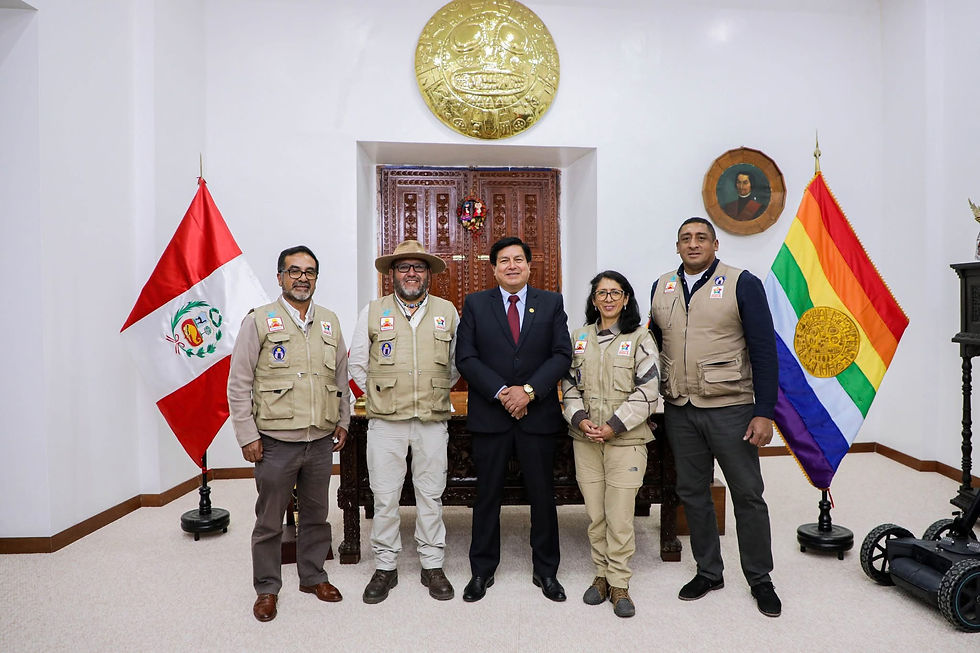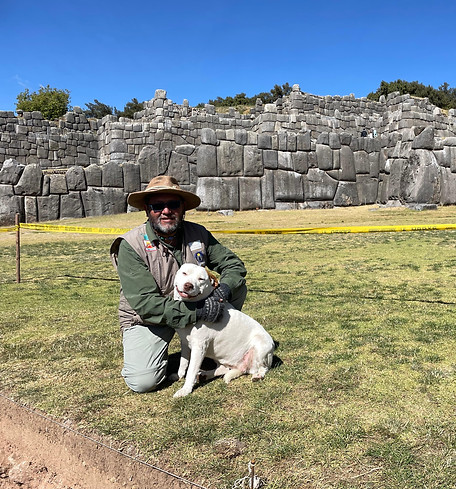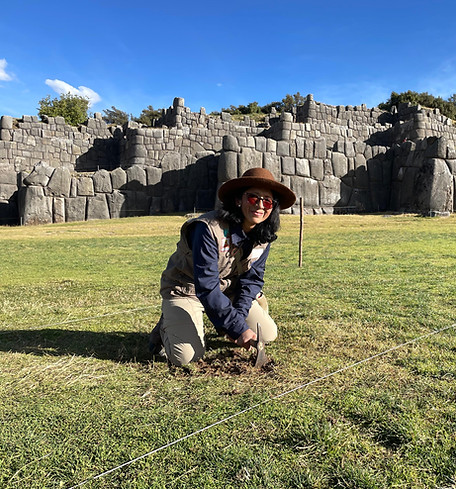
About
Punchao

Punchao is a Peru-based nonprofit dedicated to the ethical investigation and preservation of sacred sites, with a focus on archaeology, anthropology, and cultural memory in the Cusco region.
Founded by a collective of archaeology students and professionals, Punchao was born from the need to support research projects that center Indigenous voices, local collaboration, and the dissemination of knowledge through books, videos, and education.
Our work is inspired by the Inca solar deity Punchao—symbol of light, lineage, and cosmic order. It was through years of research around this figure, and the sunrise altars at Sacsayhuamán, that the idea for Punchao took shape.
Our Approach
What makes Punchao unique is our commitment to collective leadership and community-led research. Our investigations are shaped by the people closest to the sites—local archaeologists, students, and members of Indigenous communities.
We follow core Andean values such as reciprocity, respect for nature, and reverence for ancestral knowledge, integrating these into all aspects of our fieldwork and methodology.
Unlike many institutions, our decision-making is not top-down. Instead, we foster a collaborative environment that supports both scientific rigor and cultural integrity—through publications, conservation, and open dialogue.
What
We Do
Punchao is currently focused on one long-term project:
-
The Chincana Project – Excavating the legendary Inca tunnels beneath Cusco.
And has two others in the works!
-
Hatun Vilcabamba – In partnership with researcher Santiago del Valle, we are working to locate and identify what may have been the final administrative capital of the empire.
-
The Paititi Research Initiative – An upcoming study of the mythic Inca kingdom said to lie deep in the jungle.
In addition to archaeological excavation, we also engage in:
-
Preventive conservation of historical sites
-
Educational outreach through books and media
-
Future planning for museum installations
-
Ethnobotanical research with local elders
-
Mediation between Indigenous communities and state institutions

Working in Community
We work closely with the four Indigenous communities within the Sacsayhuamán Archaeological Park—many of whom face land-use restrictions that threaten both their traditions and their livelihoods. Punchao acts as a bridge between these communities and the Ministry of Culture, helping facilitate agreements that protect both cultural heritage and agricultural rights.
Over 90% of our team is locally hired, including students from Cusco and members of nearby communities. We actively seek to integrate Indigenous knowledge in our field practices—not just as consultation, but as a vital epistemology within the research itself.
The Founders

Jorge Calero - Founder
Jorge Calero is a Peruvian archaeologist, author, and researcher specializing in Inca ceremonial architecture and ancestral cosmology. A founding member of Punchao, Jorge has led numerous archaeological and anthropological investigations throughout the Cusco region, with a particular focus on solar alignments, sacred geometry, and the role of myth in Andean site planning.
He holds a Master’s degree in Cultural Heritage Management and is the author of several books on Inca spirituality and architecture, including “El Código Secreto de los Andes”. Jorge previously served on Peru’s National Council of Culture and has directed multiple museums and educational programs focused on the preservation of Indigenous knowledge. His research forms the intellectual backbone of the Chincana Project.

Mildred Fernandez - Founder
Mildred Fernández is an archaeologist and cultural heritage specialist with over a decade of experience in site protection and excavation in the Cusco region. As a co-founder of Punchao and co-director of the Chincana Project, she brings deep expertise in Andean history, heritage law, and community-centered archaeology.
Mildred previously served as Director of the Cusco Regional Office of the Ministry of Culture, where she oversaw regulatory frameworks for protected areas and helped mediate between state authorities and Indigenous communities. Her work emphasizes ethical excavation practices, inclusive fieldwork, and the integration of ancestral perspectives into official heritage policy.





